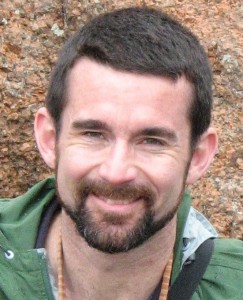 I’ve been too swamped with the day to day realities of teaching, patient care, and just plain real life lately to be very reflective, but Zackary Berger and Dave deBronkart finally spurred me on to put fingers to keyboard, and put words to my thoughts on the nascent move towards “precision medicine.”
I’ve been too swamped with the day to day realities of teaching, patient care, and just plain real life lately to be very reflective, but Zackary Berger and Dave deBronkart finally spurred me on to put fingers to keyboard, and put words to my thoughts on the nascent move towards “precision medicine.”
From the first, when I heard of Mr Obama’s precision medicine initiative, I was underwhelmed (at best) and fearful of more misdirected use of resources at worst.
We are currently working daily through the challenges of the Affordable Care Act (ACA), which on the plus side has made healthcare coverage available for many people who had none before, but on the downside it has added paperwork, reporting, and mandated screenings that I cannot see doing anything other than increasing workload without any clear benefit. (To wit, we are now required to annually screen older patients for falls risk and depression risk—these are real and serious problems, but I cannot think of a single patient for whom these screenings have told me something I did not already know, or helped me help my patient in a better way.)
Beyond my worries about excessive mandates, I am also concerned about the increasingly tarnished reputations of some of the “latest and greatest” in medical ventures. One has to look no further than recent writings in The BMJ on rosuvastatin or oseltamivir to be reminded that new developments can be oversold. The “Too Much Medicine” campaign has been shining a helpful conceptual light on our penchant for doing more and more, and more expensively, without helping our patients live any longer or better (or perhaps, even at the risk of increased harm to our patients).
I am not completely anti-innovation. I recently lost a friend to cancer at too young an age, and I’ve had several patients benefit from novel therapies or newer, less invasive surgical techniques. At the same time, however, I deal daily with patients who cannot afford their medications, or who don’t want all the pills the guidelines tell us we need to recommend, or who are skeptical about the screenings we tell them to get. I also daily see patients whose health would be improved best by better local areas to exercise, or by better availability of healthy food choices. No amount of personalized genomics can address those challenges.
“Tech” can be wonderful (I’m certainly happy for our dishwasher at home). “Tech” can also be enthralling (ie, enslaving—how many teens do you see each day with faces glued to smartphones or other video entertainment?).
I really hope we can continue to innovate and advance in medicine, and I do hope we can find ways to treat the cancers, infections, and other diseases that claim the lives of our patients—and friends and families. But I also hope that we can work just as hard at understanding our patients, partnering with our patients, helping our patients find ways to live more healthily (perhaps even more happily), and finding creative ways to care for those who just need a hand meeting their most basic health needs.
True “precision” medicine is not just about “precision” molecular biology, but precision “biopsychosocial” care for the whole person.
William E Cayley Jr practices at the Augusta Family Medicine Clinic; teaches at the Eau Claire Family Medicine Residency; and is a professor at the University of Wisconsin, Department of Family Medicine.
Competing interests: I declare that I have read and understood BMJ policy on declaration of interests and I have no relevant interests to declare.
